A dirty or clogged fuel filter can starve an engine of fuel and is always a likely cause of low engine power. Most modern vehicles with fuel injection systems use filters rated to trap debris between 10 and 30 microns (a micron is .001mm in diameter) a human hair is approximately 70 microns (.08mm). Due to their abrasive nature, even microscopic dirt or grit that gets past a faulty or dirty fuel filter can damage your engine.
On This Page
Fuel filters come in many shapes and sizes and are designed to do one thing: keep dirt, rust, scale and other impurities from entering and damaging the fuel pump, fuel injectors and engine without effecting fuel pressure. Most vehicles have two fuel filters, one in the fuel tank (called a strainer) and one located in the main fuel line.
Filtering material is made from plastic or specially coated paper that traps foreign particles that can interrupt the fuel supply.
Under heavy or high-speed acceleration, a clogged fuel filter may cause the engine to randomly hesitate, surge or sputter. Although there may be no symptoms under normal driving conditions, a clogged fuel filter will starve the engine of the extra fuel needed during hard acceleration.
Unless completely blocked, rarely will a bad fuel filter keep your engine from starting. However, a dirty fuel filter can decrease fuel pressure causing longer than usual cranking before the engine starts.
Repeated stalling while driving, especially at low-speeds or coming to a stop could signal a dirty fuel filter. Depending on the severity of the clog, your car may start right back up without any noticeable loss of power. As the clog worsens, and fuel delivery becomes more sporadic, stalling becomes excessive.
Low fuel pressure from a partially blocked filter results in a lean fuel condition and engine misfire. This can cause poor fuel mileage, rough idling and possibly engine backfire or increased engine smog.
A clogged fuel filter prevents the correct amount of fuel from reaching the engine. Trying to compensate for low fuel pressure, fuel pump pressure increases causing the pump to overheat, become noisy and fail prematurely. A saturated fuel filter that lets dirt and grit bypass the filter can clog fuel injectors, causing them to not fully open or close. This can cause any number of rich or lean fuel mixture drivability issues.
Drivability troubles caused by a clogged fuel filter can cause emission or fuel pressure sensors to illuminate the CEL, alerting the driver of a problem. In addition to turning on the CEL, the computer stores a “trouble code” in its memory. Many big box auto parts stores will read the codes for free to help identify the source of the problem.
Replacing — never cleaning — is the only “fix” for a clogged filter. However, if you are constantly replacing a clogged fuel filter, there’s probably a build-up of muck in the fuel tank. Your entire fuel system will most likely need to be disassembled, cleaned and flushed — including removing or replacing the fuel tank. A job for the pros, this is a time–consuming and extremely expensive repair.
Depending on your make, model, year and engine, a main line fuel filter usually costs around $20. You can replace the main line fuel filter yourself. If you go the DIY route, check your owner’s manual for filter location (the correct part number may also be listed). Set aside at least an hour. Again, depending on your vehicle’s specifics, it should take your mechanic less than a half-hour for them to replace a fuel filter. Let your mechanic replace the in-tank fuel tank strainer.
You can replace the main line fuel filter yourself. If you go the DIY route, check your owner’s manual for filter location (the correct part number may also be listed). Set aside at least an hour. Again, depending on your vehicle’s specifics, it should take your mechanic less than a half-hour for them to replace a fuel filter. Let your mechanic replace the in-tank fuel tank strainer.
If you are going to replace a fuel filter yourself, be sure the engine is cool, you have the proper tools and you release fuel system pressure by pulling the fuel pump fuse (check the owner’s manual for its location) and then running the engine until it shuts off. Releasing fuel pressure is critical because you do not want gas spraying all over the engine or ground — be safe and have a fire extinguisher nearby anyway — and replace all O-rings, gaskets and seals and check that all mounting brackets and retaining clips are correctly reinstalled. Start your car and check for leaks after installing the new fuel filter.
To reduce drivability problems, maintain optimum performance, reduce tailpipe (smog) emissions and extend the life of your vehicle, replace the fuel, air, oil and transmission filters (and fluids) according to your vehicle manufacturer’s recommended service schedule, or sooner under harsh, dusty or dirty driving conditions.
It’s easy to forget about your car’s fuel filters, but you may regret it if you do. Here’s what you need to know to protect your fuel supply system and maintain a smooth ride.
Most vehicles have two fuel filters. There’s one in the fuel tank, often called a strainer (which costs $25 to $100) and one in the main fuel line (usually less than $20). The filter material is made from plastic or specially coated pleated paper.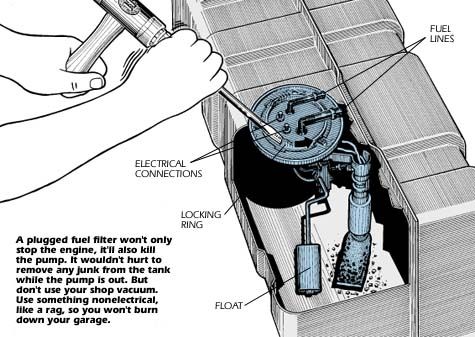 Fuel filters are designed to trap dirt, rust, scale and other impurities from entering the fuel pump, fuel injectors and engine, without effecting fuel pressure.
Fuel filters are designed to trap dirt, rust, scale and other impurities from entering the fuel pump, fuel injectors and engine, without effecting fuel pressure.
Gasoline fuel filters are rated in microns. Most modern vehicles with fuel-injection systems use filters rated between 10 and 30 microns. (A micron is .001mm. By comparison, a human hair is approximately 70 microns or .08mm.) This is critical because modern engines have extremely tight fuel system and engine component tolerances. Due to their abrasive nature, combined with the high fuel pressure of fuel-injected engines, any foreign particles that gets past a faulty or dirty fuel filter can cause blockages that interrupt the fuel supply and damage your engine.
On This Page
Under heavy loads, a clogged fuel filter may cause the engine to randomly hesitate, surge or sputter. This tends to be more prominent when accelerating, especially up a steep incline. Although there may be no symptoms under normal driving conditions, a clogged fuel filter will starve the engine of the extra fuel needed when quickly accelerating. Depending on the extent of the fuel restriction caused by a dirty filter, an engine may also shake or stutter at different speeds.
Although there may be no symptoms under normal driving conditions, a clogged fuel filter will starve the engine of the extra fuel needed when quickly accelerating. Depending on the extent of the fuel restriction caused by a dirty filter, an engine may also shake or stutter at different speeds.
Unless totally blocked, rarely will a bad fuel filter keep your engine from starting. On a vehicle where a fuel filter has never been changed, the dirty filter can cause erratic fuel flow, resulting in longer than usual cranking before the engine starts. Check your owner’s manual on filter replacement intervals.
An engine that repeatedly stalls while driving could be warning you of a dirty fuel filter. Again, depending on the severity of the clog, your car may start right back up without any noticeable loss of power. As the clog worsens and fuel delivery becomes more sporadic, stalling becomes excessive or worsens on acceleration. It’s likely the filter is getting completely clogged and it’s time for a replacement.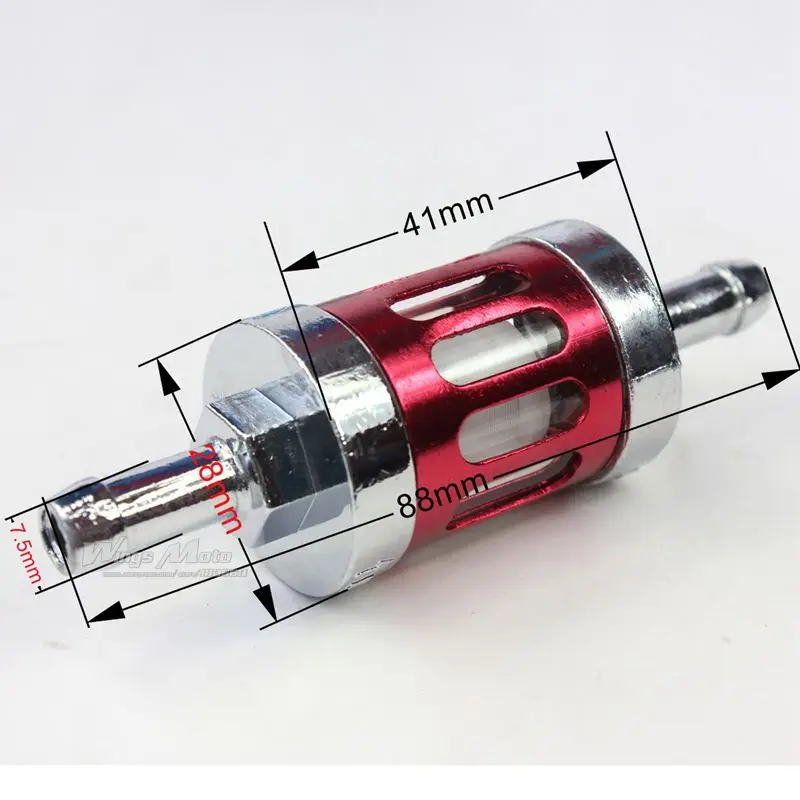
A clogged fuel filter causes low fuel pressure that results in a lean fuel condition and engine misfire. This can result in poor fuel mileage, rough idling and possibly cause the check engine light to come on. Once that light is on, it’s time for a trip to the repair shop.
A noisy, damaged or failed fuel pump can be the caused by a restricted fuel filter. A clogged fuel filter prevents the correct amount of fuel from reaching the engine. The fuel pump will try to compensate for a bad fuel filter, placing undue pressure on the fuel pump motor causing the pump to fail prematurely.
Contaminates that get past a dirty fuel filter can damage, clog or cause a fuel injector to leak, leading to all types of engine drivability problems. Unless totally failed, replacing a dirty fuel filter and servicing or flushing the injectors (done by the pros) should get you back on the road with minimal expense.
The main line fuel filter is replaceable. But before you go the DIY route, be sure the engine is cool, you have the proper tools, and you release fuel system pressure by pulling the fuel pump fuse (check the owner’s manual for its location) and running the engine until it shuts off. Releasing fuel pressure is critical because you do not want gas spraying all over the engine or ground. Be safe and have a fire extinguisher nearby anyway.
But before you go the DIY route, be sure the engine is cool, you have the proper tools, and you release fuel system pressure by pulling the fuel pump fuse (check the owner’s manual for its location) and running the engine until it shuts off. Releasing fuel pressure is critical because you do not want gas spraying all over the engine or ground. Be safe and have a fire extinguisher nearby anyway.
Replace all O-rings, gaskets and seals. Replace all mounting brackets and check to make sure all retaining clips are correctly reinstalled. Of course, check for leaks after installing.
There are several other reasons for loss of engine power and drivability problems, but it’s worth checking the condition of the fuel filter first. It’s an inexpensive and easy fix.
Bob Lacivita
Bob Lacivita is an award-winning ASE and General Motors auto technician, educator and freelance writer who has written about DIY car repairs and vehicle maintenance topics. His work has been featured in The Family Handyman, a Reader's Digest book and Classic Bike Rider magazine. He has been a career and technical educator for 25 years teaching automotive technology, as well as writing state, federal and organizational foundation grants. He also helped design a unique curriculum delivery model that integrates rigorous, relevant academic standards seamlessly into career and technical education.
He has been a career and technical educator for 25 years teaching automotive technology, as well as writing state, federal and organizational foundation grants. He also helped design a unique curriculum delivery model that integrates rigorous, relevant academic standards seamlessly into career and technical education.
The filter element is a consumable item and must be replaced periodically. Many motorists forget about this and face the unpleasant consequences (symptoms) of a clogged fuel filter. For example, when overtaking a truck, the driver presses the gas pedal, and the car picks up speed very slowly.
Contents
The main task of the fuel filtering device is to clean the fuel from harmful impurities: dust particles, dirt, insects, plants, resins, and condensate.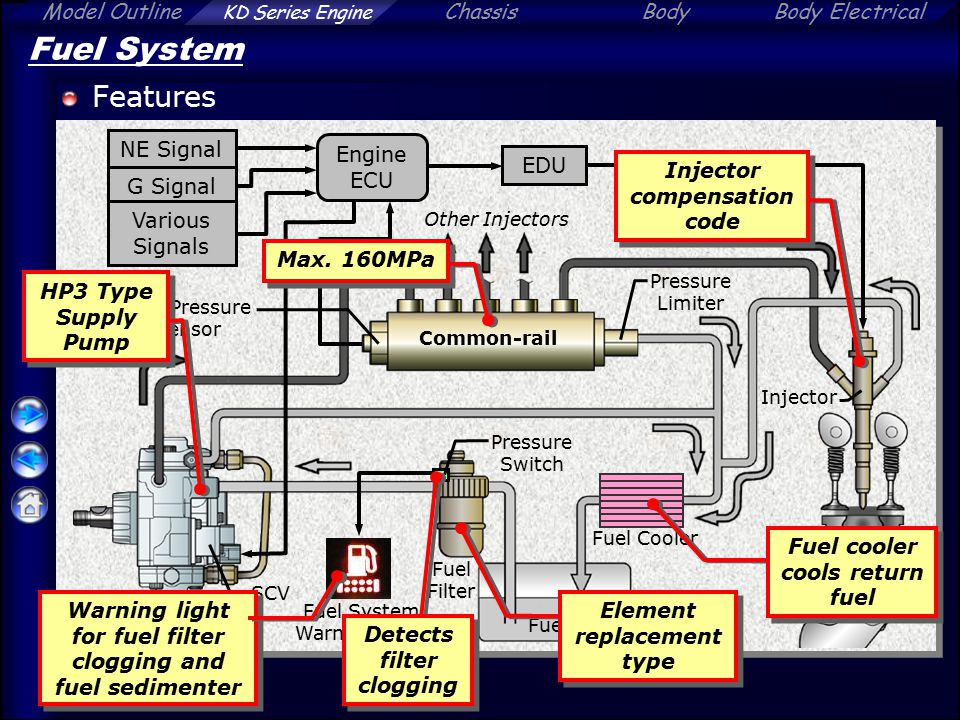 The presence of water in the fuel system leads to rusting of the injectors, contributes to the development of corrosion, which is very detrimental to ensure the normal operation of the engine, these harmful impurities can clog the fuel system. The specified device allows you to clean low-quality fuel from resin particles and various additives added to the fuel by unscrupulous manufacturers.
The presence of water in the fuel system leads to rusting of the injectors, contributes to the development of corrosion, which is very detrimental to ensure the normal operation of the engine, these harmful impurities can clog the fuel system. The specified device allows you to clean low-quality fuel from resin particles and various additives added to the fuel by unscrupulous manufacturers.
Depending on the technological features and type of injection, various fuel filters are distinguished:
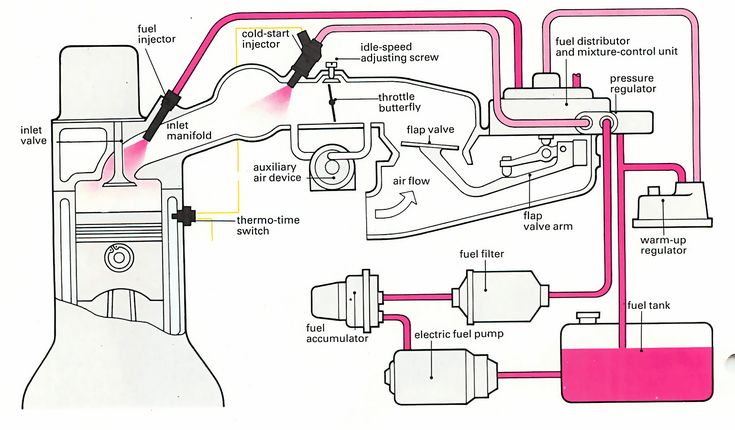
We recommend watching a video showing the symptoms of a clogged fuel filter:
The symptoms of a clogged fuel filter are quite diverse. Keep in mind that the symptoms listed below may indicate not only a breakdown of the filter device, but also possibly indicate the causes of a malfunction in the control system. To make sure for reinsurance that the reason is in the fuel filter, you can use the following method: take a pressure gauge and connect it to the nipple located on the fuel injector frame, then start the car, measure the pressure of the fuel mixture. In the case when the pressure gauge shows parameters below those provided by the car dealer, we can talk about a fuel filter malfunction.
Clogged filterWith a decrease in the throughput of the filtering device, interruptions in the operation of the power unit are observed:
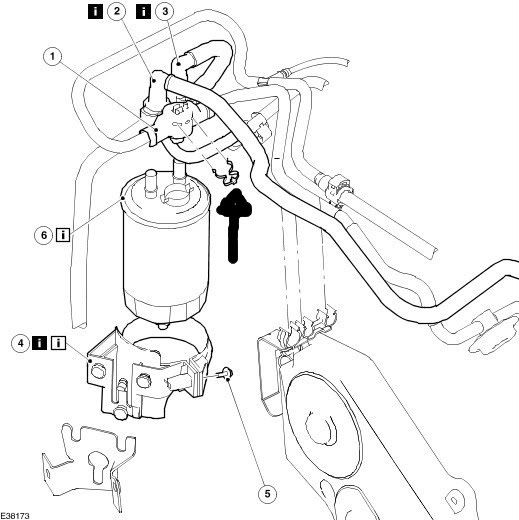
All of these symptoms are observed when the filter is clogged, its increased resistance to the intake air flow creates an additional load on the engine.
We figured out the signs of a clogged fuel filter, now let's see the reasons leading to clogging of the filter device:

These causes cannot be eliminated, so keep an eye on the condition of the filter device, follow the dealer's recommendations regarding the scheduled replacement of consumables. Replace the filtering device yourself, if the machine is not under the dealer's warranty.
Author Sergey PolishchukPosted on Categories FiltersTags engine, filters, fine filter, fuel filter Fuel contains particles, deposits and contaminants that can clog the fuel filter.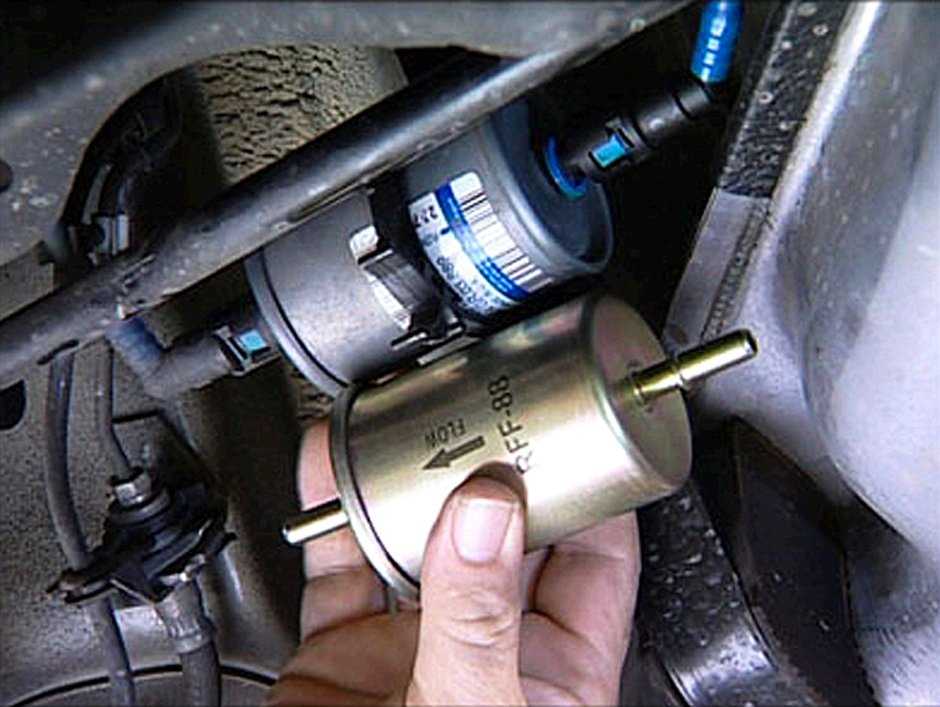 The accumulation of contaminants in the tank restricts the flow of fuel, which can later cause engine problems. Fuel filters perform an important function in your car's engine fuel system and problems are often misdiagnosed as they mimic other common problems. The job of a fuel filter is to trap impurities in the filter media and prevent them from entering the fuel system, which ultimately affects engine performance.
The accumulation of contaminants in the tank restricts the flow of fuel, which can later cause engine problems. Fuel filters perform an important function in your car's engine fuel system and problems are often misdiagnosed as they mimic other common problems. The job of a fuel filter is to trap impurities in the filter media and prevent them from entering the fuel system, which ultimately affects engine performance.
Your car's fuel filter is often a small part that does a great job.
As the fuel filter does its job of trapping particles, the filter media becomes heavily clogged. Even the smallest amount of debris can lead to costly damage, poor gas mileage and reduced productivity.
Debris reduces the fuel supply to the pump and the amount of fuel that reaches the injectors. If the filter becomes too clogged, the reduced amount of fuel will result in reduced power and may cause engine vibration, misfiring or stalling.
Knowing the symptoms of a bad fuel filter will help prevent engine damage and the need for repairs.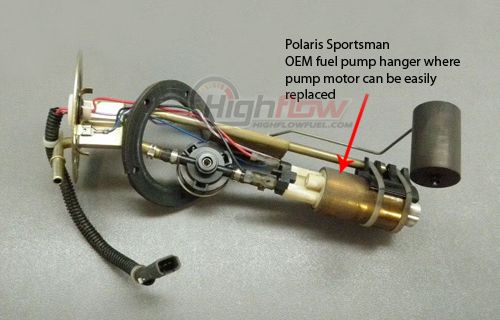 Here are a few signs that it's time to change your filter.
Here are a few signs that it's time to change your filter.
• Performance Decrease : Performance problems become noticeable at lower speeds when the fuel pressure is lower. Signs to look out for include rough idle, hesitation or shutdown when accelerating.
• Suspicious Vehicle Behavior : Delayed power response when accelerating or engine vibration when trying to increase speed may be a sign of a dirty fuel filter.
• Rough idle : With less fuel flowing through a partially clogged filter, the vehicle is more likely to run rough at idle. At this stage, it is very important to check the fuel filter, as the problem will most likely not go away and the car may start to stall or not start at all.
• Starting problems: The internal combustion engine requires a certain amount of fuel to start and continue running. A clogged fuel filter can prevent enough fuel from getting into the fuel system, preventing the engine from starting easily, or worse, preventing it from starting at all.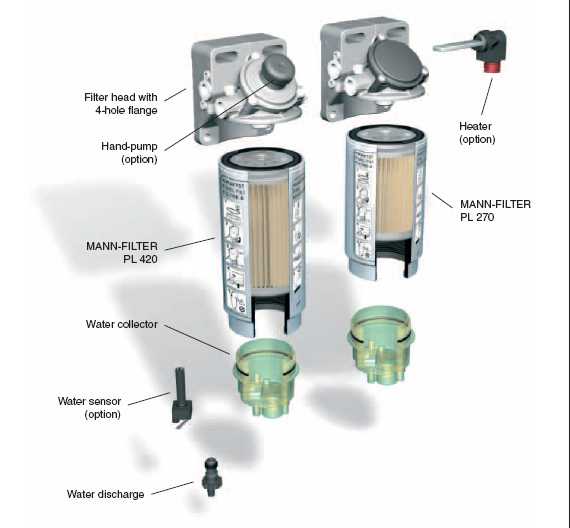
The exact answer to the question of how many kilometers you need to change the fuel filter is in the service book for the car.
Typically, manufacturers recommend a filter replacement interval equal to 15-60 thousand kilometers.
Some companies recommend changing main filters after 10-25 thousand km, and submersible filters - after 30-100 thousand.
However, during periods when normal operating conditions are violated (poor fuel, low quality filter elements), the recommended replacement periods should be reduced.
In any case, the immediate replacement of the fine filter must be carried out at the slightest suspicion of its unsuitability.
• excess fuel consumption;
• refusal to start the car;
• jerky movement;
• the machine may spontaneously stall;
• power reduction;
• subsequently the fuel pressure decreases;
• Indicator Check Engine may light up on the instrument panel.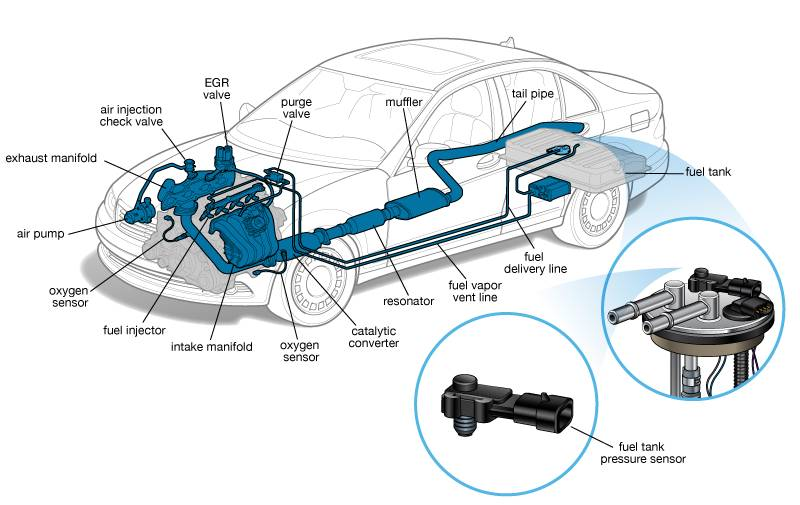
The older the car, the more often the filter should be replaced. This is because after about seven years of driving, rust, dirt and debris build up, clogging the filter.
07/13/2021 15:04:31
0
4919
Why is it important to change the air filter often? Air is a full-fledged component in the formation of the air-fuel mixture for a car engine. On average, a car travels about 15,000 - 20,000 km per year. Throughout this time, the car passes tens of thousands of cubic meters of air through itself. For example, burning 1 liter of gasoline requires about 12 cubic meters of air..
06/09/2021
0
1515
Inadequate combustion of the fuel-air mixture can lead to smoke formation. Failures in the combustion process signal that coolant enters the combustion chamber. These faults are capable of coloring exhaust gases in different colors. Faults, why the car smokes Problem with fuel supply; Wear of the piston group; ..
Failures in the combustion process signal that coolant enters the combustion chamber. These faults are capable of coloring exhaust gases in different colors. Faults, why the car smokes Problem with fuel supply; Wear of the piston group; ..
06/15/2021
0
10263
Sometimes the question arises: "Is it possible to mix oils of different brands, categories and viscosities?" There are disputes about this, and there is no consensus. Recommendations from oil manufacturers often differ. Often there are situations when you need to add oil, but there is oil left in the engine from another manufacturer. The problem also arises when switching to another manufacturer's oil and a different viscosity. Even if by..
07/01/2021
0
3266
Gasoline Direct Injection (GDI) is a fuel injection system for direct injection gasoline internal combustion engines in which the injectors are located in the cylinder head and fuel injection occurs directly into the cylinders.